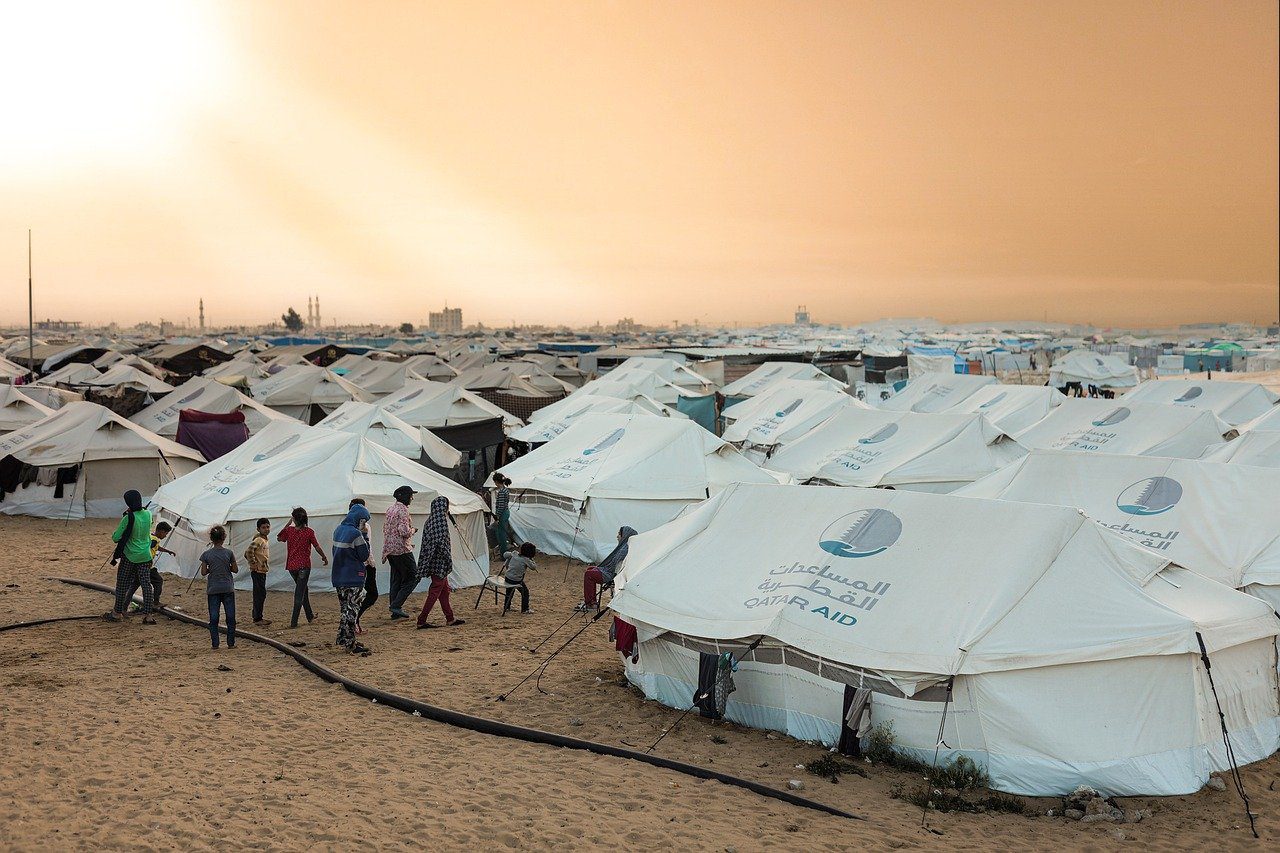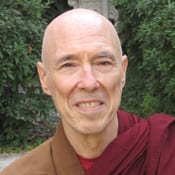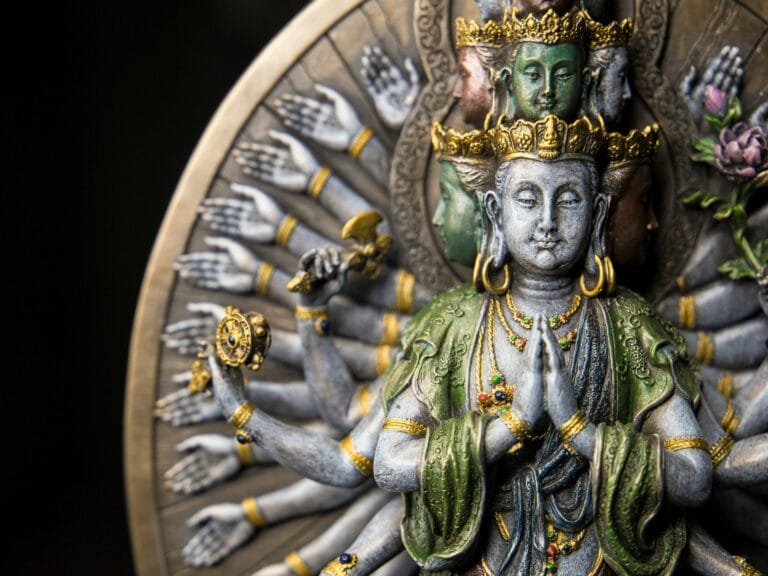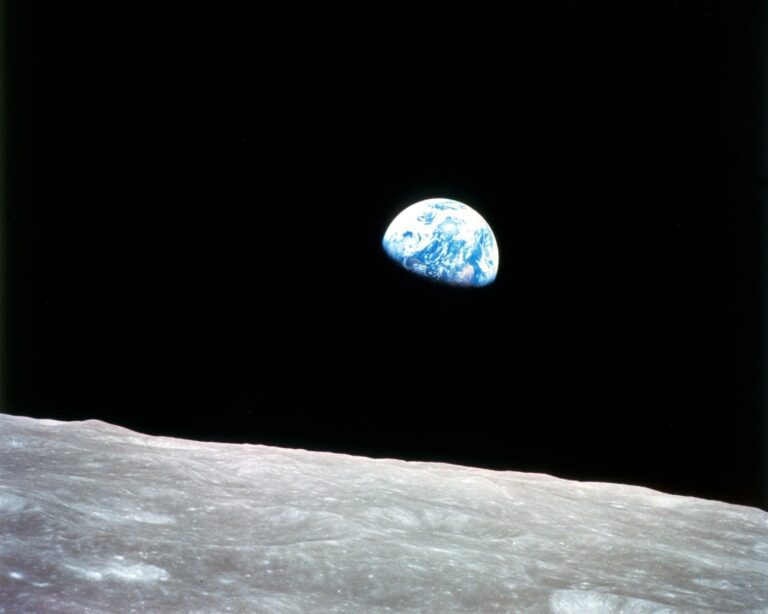I write this essay as a senior American Buddhist monk of Jewish ethnicity who has been deeply distressed by Israelis military assault on the population of Gaza. I see this campaign as one of the gravest moral crises of our time. The blistering bombardments, the ever-mounting death toll, the deadly blockade of vital essentials, the annihilation of innocent human lives – all these events sear the moral consciousness like a red-hot iron. I find myself shouting from the depths of my soul: For Gods sake, stop it! Indeed such a cry has arisen not only from Western-based Palestinian and Arab groups, but also from progressive Jewish organizations such as Jewish Voice for Peace and If Not Now. Yet American Buddhist communities and Buddhist leaders, who should be speaking up, have been eerily silent.
I learned this, to my dismay, already in late October, during the third week after the assault began. At this time I turned to the internet to see what the prominent Buddhist teachers, centers, and online Buddhist journals were saying in response to Israels operations in the Gaza Strip. I expected to see a flurry of essays and talks condemning the violence. However, with a few noteworthy exceptions, I found that hardly anyone was saying anything. Moved by an urgent need to raise a Buddhist voice in response to the devastation, I joined with my friend Alan Senauke in drafting a petition to President Biden, asking him to call on the Israeli government to adopt an immediate and unconditional ceasefire in Gaza. We posted the petition online and within two weeks the petition had gathered almost 2,000 signatures. We printed it out and sent it to the White House and several congressional leaders.
Despite the positive response the petition gained across a wide swath of grass-roots Buddhist practitioners (and perhaps non-Buddhists too), silence still reigned at the top, among the Buddhist teachers I expected to be speaking up and mobilizing their students
to act. Just recently, I discovered I’m not the first to notice the reticence of Western Buddhists to face painful global issues head on. The American social commentator Theo Horesh, in his book The Holocausts We Deny, anticipated my concern a couple of years ago when he wrote (Boulder: Cosmopolis Press, 2021, loc 1317):
… we might expect Buddhists, whose religion focuses on examining and ending [suffering], to take a special interest in the social and political causes of injustice. However, Buddhists do not tend to talk much about justice and the suffering it can alleviate…. They deny its existence, argue against its importance, psychoanalyze the people talking about it, and dismiss the political processes involved in ending it for the anger they often generate.
Horesh is certainly over-generalizing here, for there are Engaged Buddhists and other Buddhist activists who earnestly fight against systemic injustice and other forms of socially induced suffering. But in relation to the situation in Gaza the silence maintained by so many American Buddhist leaders seems to bear out Horesh’s observation.
I don’t see how, once we bear witness to these horrific crimes, we wouldn’t feel that a heavy moral responsibility has fallen on our shoulders, a burden we just can’t shake off by claiming these atrocities don’t concern us.
Given the many instances of sheer inhumanity unfolding over just two decades in Iraq, Syria, Tigray, Myanmar, and Ukraine why should I highlight Gaza as the paramount moral calamity of this century? I do so for several reasons. One concerns the sheer intensity of the assault. Arif Husain, the chief economist at the UN’s World Food Program, bears testimony to this with his remark: (Gaza Is Starving | The New Yorker) “I’ve been doing this for the past two decades, and I’ve been to all kinds of conflicts and all kinds of crises.
And, for me, this [situation in Gaza] is unprecedented because of, one, the magnitude, the scale, the entire population of a particular place; second, the severity; and third, the speed at which this is happening, at which this has unfolded.”
The figures representing deaths, injuries, and destruction in Gaza bear out Husein’s words. We are told that seventy percent of the victims are women and children; that doctors, medical staff, journalists, and university professors are being targeted; that all of Gaza has become a death camp where no one is safe anywhere. We learn of whole families being liquidated at the drop of a bomb, three generations wiped out in an instant; of kids losing their parents and all their siblings, left with no surviving family members in the world; of hospitals being shattered and their patients forced to walk miles to designated safety zones, only to be hit by sniper fire enroute or struck by rockets when they arrive. On top of the deaths, injuries, and demolitions directly caused by the bombardments, Israel’s near-total blockade of vital – essentials food, water, fuel, and medicines – drives the spike of suffering even more deeply into the hearts of Gaza’s population, subjecting displaced people to extremes of hunger, thirst, and infectious disease. Now that the major Western donors are suspending their funding of UNRWA, the UN relief agency for Palestinian refugees, the very lifeline for the people of Gaza is being cut.
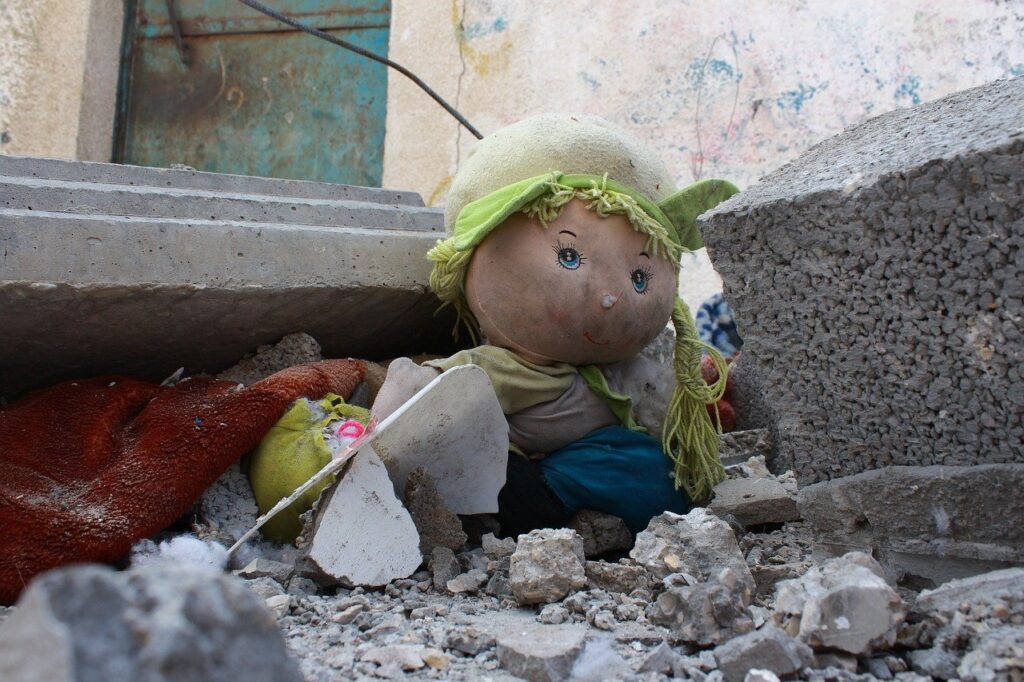
The second factor that underscores the moral gravity of the crisis in Gaza is its visibility, its living immediacy. Unlike the Nazi Holocaust and other war crimes – including Russia’s blood-curdling operations in Ukraine – the genocide in Gaza unfolds live on our television and computer screens, right before our eyes, just as it is happening. The images jump out from the screen and beg us to act: children with amputated limbs, their bodies torn and broken; babies abandoned in powerless incubators; apartment buildings and universities collapsing like decks of cards; historic churches and mosques destroyed beyond repair; refugees crammed into infested camps, crying out for water and food; corpses thrown into mass graves; captives blindfolded and stripped naked, paraded like cattle through desolate streets.
For me personally, such images make all my normal activities – chatting with friends, going out for a hike, discussing the intricacies of Buddhist philosophy – seem insipid, hollow, and pointless. I find that even meditation on the breath becomes difficult when the images of mutilated children and starving families keep streaming through the mind. I don’t see how, once we bear witness to these horrific crimes, we wouldn’t feel that a heavy moral responsibility has fallen on our shoulders, a burden we just can’t shake off by claiming these atrocities don’t concern us.
A third factor that heightens the moral gravity of the Gazan crisis derives from the fact that it is the state of Israel, the self-declared national home of the Jewish people, that has been inciting all this suffering, anguish, and death on Gaza. Yes, we do hold Israel to a higher moral bar than we do most other nations, but not from anti-Jewish bias. We do so because the Jews are the ethnic group that experienced the most horrific torments during the Holocaust, and, we believe, they would naturally be the most vigilant defenders of the inviolable right of people to be free from persecution and oppression. The vow “Never again,” as understood by Jews of conscience, means never again for anyone. Yet, instead of showing empathy, Israel is now using the past trauma of the Holocaust – and the guilt of the countries that inflicted that trauma – as a shield to silence criticism and maintain its impunity. It’s as if they are saying to the world: “You can’t touch us because you bear the guilt for our past suffering.”
The fourth way in which the crisis in Gaza bears moral weight relates specifically to us here in the United States. We have to recognize that it is our country that is providing Israel with the unconditional support it has needed to carry out its campaign. With our own tax dollars, we fund Israel’s military, supplying it with the most advanced, most deadly, most sophisticated weaponry available. We give Israel diplomatic cover at the UN through our use of the veto, blocking even feeble motions for a humanitarian ceasefire. And we give Israel moral cover by echoing the messages of its propaganda machine at press conferences and international gatherings, while tarring and stigmatizing those who criticize its actions.
In my understanding, equanimity should not stifle our capacity to make wise moral judgments or negate our obligation to act on the basis of clear ethical convictions. Equanimity can easily coexist with compassion and accompany conscientious action intended to rectify moral wrongs.
When all the moral dimensions of the situation in Gaza are viewed together – the sheer volume of indiscriminate killing and destruction; the fact that the devastation is starkly visible to us through the media; the fact that the operation is being carried out by the state representing the Jewish people, the historic victims of persecution and genocide; and the complicity of the United States in furthering the destruction of Gaza – they point to a still deeper moral crisis. Taken conjointly, all these factors shatter the moral framework offered to us as the key for understanding our world.
For decades, the major Western powers – especially the U.S., the U.K., France, and Germany – have presented themselves as the bulwarks of the rules-based international order, the defenders of human rights and decent human morality. Yet now, under the shallowest of pretexts, they throw their weight behind Israel’s assault on Gaza, even when the International Court of Justice designates it a “plausible genocide.” This unwavering loyalty to a nation that outs international law overturns the moral lens through which we’ve been taught to view the global order. Now the masks come off, exposing the hypocrisy of the major Western powers hidden behind their polished exteriors.
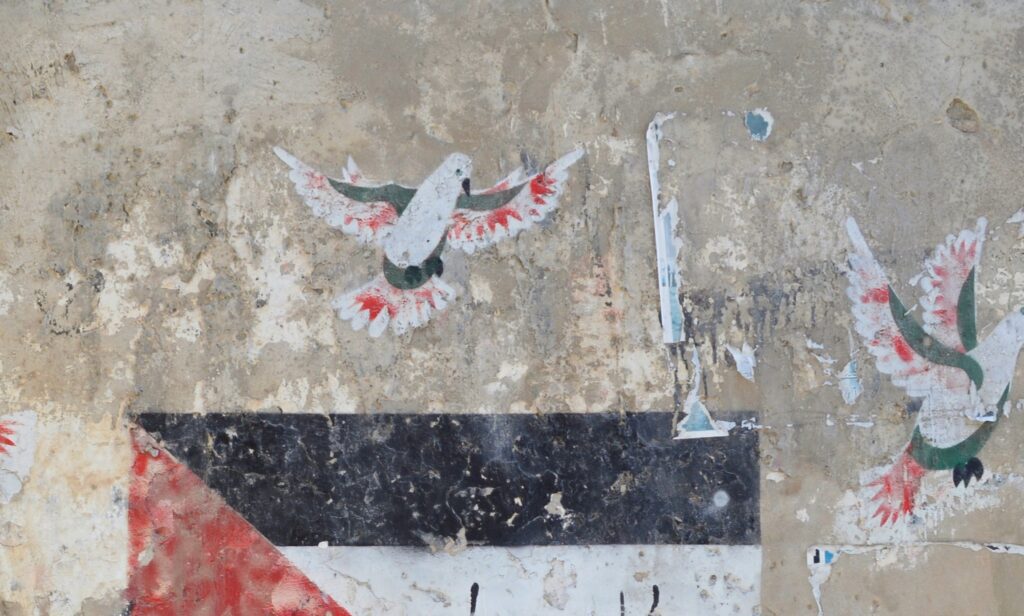
In short, the crisis in Gaza shows those nations that should be defending international law and humanitarian values to be openly betraying their commitments in subservience to a state that flagrantly violates the most fundamental standards of human dignity. They advise Israel to carry out its operations in accordance with international law, but continue to provide it with weapons even when it breaks those laws. They say they favor peace, but at the UN Security Council they veto or abstain from resolutions calling for a humanitarian ceasefire. They say they are opposed to genocide, but dispute South Africa’s case at the World Court. They say that Israel should treat prisoners humanely, but turn a blind eye when it tortures, humiliates, and even executes them. Since we, as Americans, are citizens of the nation foremost in shielding Israel from accountability, this places on us the moral burden of opposing our country’s policies. Given this responsibility, how can we keep silent? The ethical teachings of Buddhism provide the pillars of a strong moral framework that should shape our engagement with the world, particularly today when we bear witness to the tragedies in Gaza. The five precepts enjoin non-harming in body, speech, and thought. Buddhist social ethics advocate non-violence in resolving conflicts. The Buddha enjoins non-killing not only as a personal endeavor but as a duty to prevent killing by others. Buddhism extols the “divine abodes” of loving-kindness and compassion as ethical ideals and themes of meditation practice. The bodhisattva vows commit us to saving and liberating countless sentient beings from suffering.
Though the background to the conflict may be complicated, extending back to the late nineteenth century, the moral temperature of the events playing out in Gaza over the past four months has been starkly clear. Thus, there is no excuse for standing speechless on the sidelines. Granted, Hamas triggered the latest round of violence with its horrific assault on Israel on October 7th, granted that Israelis should be able to live secure within their country’s borders, this cannot justify military operations that are killing and wounding hundreds of civilians each day or a program subjecting the whole population to mass starvation. Opposing such violations of basic human rights is not an endorsement of Hamas. Demanding that Israel comply with international law does not mean we side with terrorism. It is, rather, an act of courage and compassion.
Again, taking a bold stand doesn’t mean that we are being swept away by discordant views and failing to maintain a stance of impartial equanimity. In my understanding equanimity should not stifle our capacity to make wise moral judgments or negate our obligation to act on the basis of clear ethical convictions. Equanimity can easily coexist with compassion and accompany conscientious action intended to rectify moral wrongs. The moral obligation in this case becomes especially compelling when it is our own country’s government that has been backing Israel in a campaign that the International Court of Justice determined may plausibly be considered genocide.
The Buddhist ideal of non-violence, the strictures against killing, the primacy of compassion, and the vow to save sentient beings oblige us to join our hearts, voices, and deeds with the many others demanding a resolution to the crisis.
In the final analysis, we can’t let silence reign as the final word. We can’t let silence replace the word. Both as U.S. citizens and as Buddhists we have a solemn moral duty to speak up and step forward to act. Since the U.S. government represents us, we must boldly oppose its support for Israel’s operations that are battering Gaza’s desperate population. Our commitment as Buddhists amplifies our moral obligation as U.S. citizens. The Buddhist ideal of non-violence, the strictures against killing, the primacy of compassion, and the vow to save sentient beings oblige us to join our hearts, voices, and deeds with the many others demanding a resolution to the crisis. The plain fact is that the key to a solution lies in the hands of the U.S.; only by applying economic and political pressure on Israel can the conflict be justly resolved. And crucially, a just resolution would also serve Israel’s long-term interest, finally permitting it to live at peace with a free Palestine state, for the mutual benefit of both nations.
Every voice counts, and we can add our weight to the effort in a variety of ways: by joining marches, writing to the White House and our representatives in Congress, posting relevant news articles and commentary on our social media platforms, writing articles and giving talks, and better informing ourselves about the situation. It’s not enough to post bromides on social media about love and peace or to pin doves and hearts to our profiles. To fulfill our duty as moral beings and as followers of the Dharma, we need to actively express our solidarity with the besieged Palestinians who can’t come forward and speak for themselves. And that means, for a starter, that we need to call for a complete ceasefire. Not just for “peace,” but for a real, complete, monitored ceasefire.
But a ceasefire is only the first step. Beyond stopping the present round of destruction, we should also demand a genuine, sincere, concerted attempt to finally fulfill the aspirations of the Palestinian people for a fully sovereign state of their own, which will also be the precious key to Israel’s security. The road to a solution of this long-standing problem will be rocky and hard, but we need to join with the many others calling for the first steps to be taken – and to be taken now.
This article is featured in GAZA Calling for a Dharma Response, a webzine offered by Sacred Mountain Sangha and the Sacred Justice Coalition, in collaboration with an international coalition of Dharma teachers, leaders, and sangha members.

